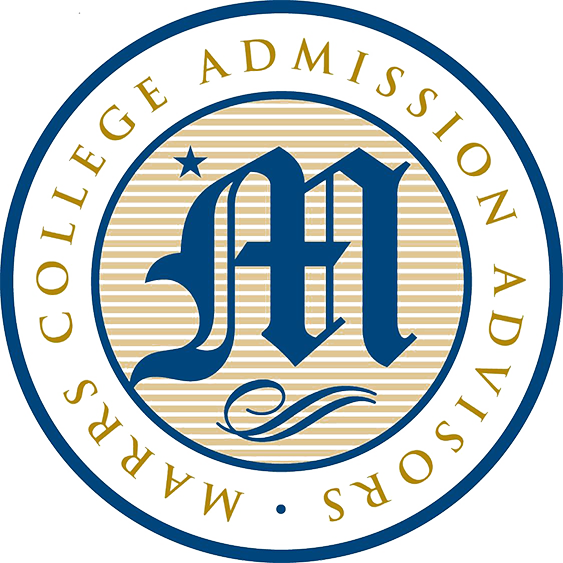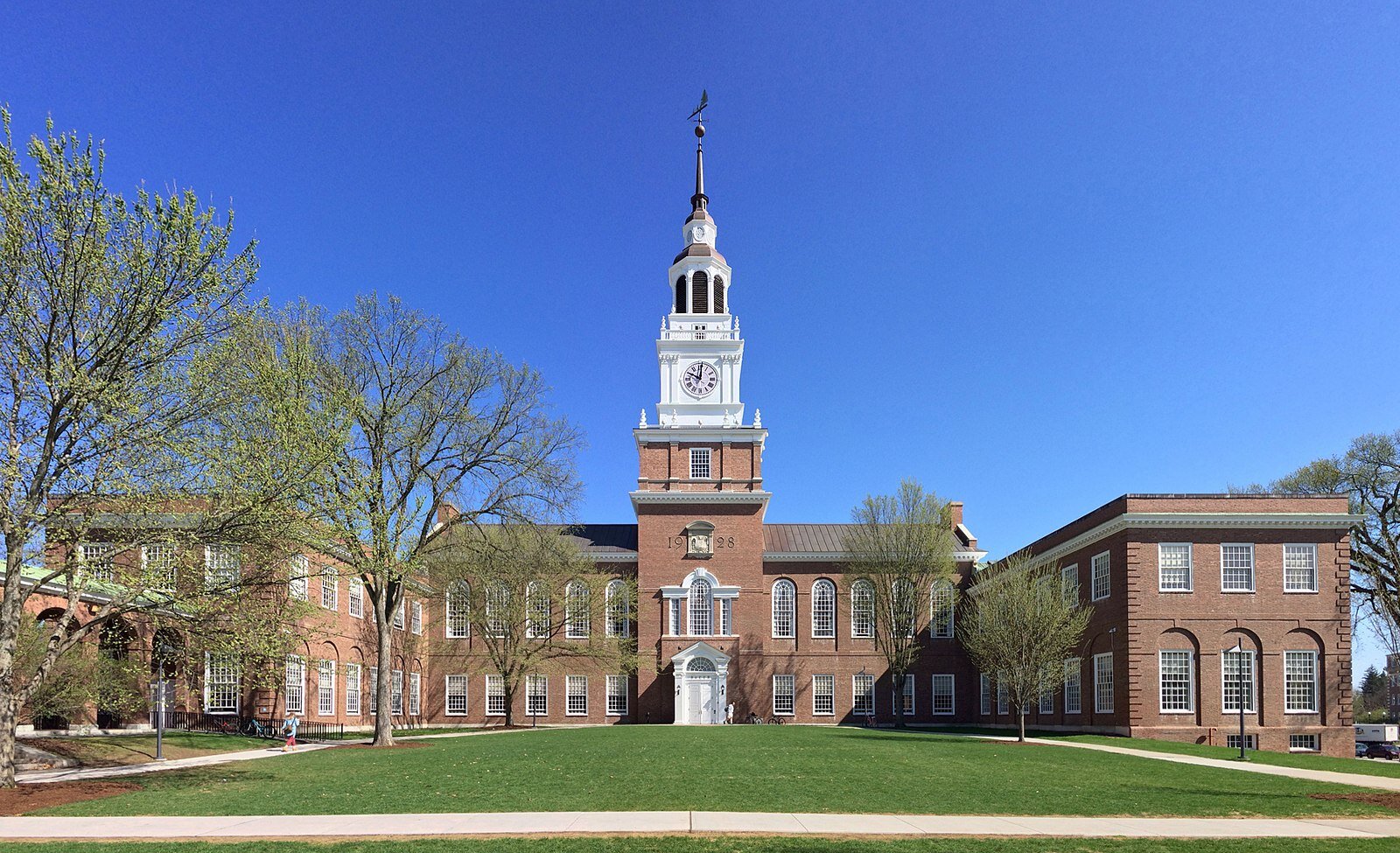College Highlight
Dartmouth College
The smallest Ivy and the one with the strongest emphasis on undergraduates. Traditionally the most conservative member of the Ivy League, it has steered toward more student diversity and more serious scholars, but long-standing party culture persists. Ivy ties notwithstanding, Dartmouth has more in common with places like Colgate, Middlebury, and Williams. Great for those who like the outdoors.
Unlike the other seven members of the Ivy League, which trace their roots to Puritan New Englanders or progressive Quaker colonists, Dartmouth College was founded in 1769 to educate Native Americans. The student body has always been the smallest in the Ancient Eight, and the school's focus on undergraduate education differentiates Dartmouth from its peers, though it does offer graduate programs in engineering, business, and medicine. The college attracts plenty of hiking and skiing enthusiasts, and the Dartmouth Outing Club is still the most popular extracurricular organization. But these days, as Dartmouth focuses increasingly on building a warm, inclusive community and emphasizing the importance of global ties, students are just as likely to join a hip-hop dance group or to spend a vacation doing college-sponsored community service in Latin America. According to one freshman, "We strongly value traditions, we like to have fun in our woodsy New Hampshire home, and at the same time, everyone is incredibly academically involved."
Dartmouth's picturesque campus is the most rural of the Ivies, and its winters may be the coldest, with the possible exception of those at Cornell. Set in the "small, Norman Rockwell town" of Hanover, New Hampshire, which is bisected by the Appalachian Trail, the campus is arranged around a traditional New England green.
Dartmouth's status as a member of the Ivy League means academic excellence is a given. First-years must take a writing-intensive seminar that involves both independent research and small-group discussion; about 75 are offered each year across different departments. Students must also demonstrate proficiency in at least one foreign language and take three world culture courses (one non-Western, one Western, and one Culture and Identity), and 10 courses from several distribution areas spanning the liberal arts and sciences. In addition, Dartmouth has a senior culminating activity—a thesis, public report, exhibition, seminar, production, or demonstration—that allows students to pull together work done in their major with a creative and intellectual twist of their own. Before arriving on campus for their first year, 90 percent of incoming students opt to go on five-day preorientation trips with the Outing Club, getting to know their classmates while exploring the great outdoors.
Popular majors include economics, government, computer science, engineering sciences, English, and history. Programs in engineering, biological sciences, and environmental studies are particularly strong, and the languages are also well regarded; students benefit from the Intensive Language Model developed by the late Professor John Rassias. Computer science offerings are among the best in the nation, thanks in no small part to the late John Kemeny, the former Dartmouth president who coinvented time-sharing and the BASIC language. Indeed, computing has long been a way of life here, and the campus remains a leader in academic wireless connectivity.
Professors get high marks at Dartmouth, perhaps because of the school's focus on undergraduates. The rural location also helps; faculty make a conscious choice to teach here, leaving behind some of the distractions afflicting their peers at more urban schools. "If you come to Dartmouth for only one thing, it would be the faculty," says an economics major. "The professors are truly the best out there for undergraduates.
The school's most notable eccentricity is the Dartmouth Plan, or "D-Plan"—four 10-week terms a year, including one during the summer. Students must be on campus for three terms during the freshman and senior years, and also during the summer after the sophomore year, but otherwise, as long as they're on track to graduate, they can take off whenever they wish.
Consistent with its historical roots, Dartmouth continues to have a strong interest in recruiting and supporting Native American students, who currently represent 2 percent of the undergraduate student body. Students here have a "true, true love for this school and a passion for learning not simply for the grade but for the experience," says a senior. Students retain that passion after graduation, as Dartmouth has the most elaborate network of alumni organizations of any college in the country. Politically, an economics major says, "Most students are either liberal or quietly conservative." Admissions are need-blind, even for students admitted from the waitlist, and the school meets the full demonstrated need of all admits. It also offers free tuition and no loans to students from families with incomes below $100,000 a year. No merit or athletic scholarships are awarded; the Ivy League prohibits the latter.
Eighty-seven percent of Dartmouth students live on campus in one of more than 30 dorms, which, in an effort to create a greater sense of community among undergraduates, have been organized into six House Communities, each led by a House Professor. "From suites to singles to apartment-style housing, it's easy to find housing on campus that will suit you," says an engineering physics major. Beginning in their freshman year, students can apply to live in one of several living/learning communities, from the Sustainable Living Center to Global Village to various identity-based communities. Housing is guaranteed for freshmen and sophomores.. "Dartmouth has taken a lot of steps to constantly address the issue of sexual assault, but sometimes it feels like it's more a result of trying to combat scandals than to actually take steps to address the problem," comments a junior.
"Social life primarily occurs on campus," says a senior. "There is college programming every Friday and Saturday night, including everything from roller-skating to pottery nights and comedy shows." Dartmouth's Greek system attracts 35 percent of the men and 42 percent of the women, who rush during the fall of their sophomore year. Although still the center of the school's party scene, fraternity parties are inclusive: "What's really unique about our Greek system is that it's open to the entire campus—if you have a Dartmouth ID card, you cannot be denied entry," explains a student. Dartmouth was one of the first schools to develop a counseling and educational program to combat alcohol abuse.
"I was sold on Dartmouth because it is steeped in tradition," says one senior. Major traditions include homecoming, which boasts a 75-foot-tall bonfire, and Winter Carnival, which involves ski racing at the college's skiway, 20 minutes away, as well as snow-sculpture contests, a polar plunge, and partiers from all over the Eastern seaboard.
Dartmouth attracts outdoorsy, down-to-earth students who develop extremely strong ties to the school—and each other—during four years together in this quintessential rural New England setting. It seems as if every other grad has a title like deputy assistant class secretary, and many return to Hanover when they retire, further cementing their bonds with the college and driving local real estate prices beyond the reach of most faculty members. You'll have to be made of hardy stock to survive the harsh New Hampshire winters. But once you defrost, you'll be rewarded with lifelong friends and a solid grounding in the liberal arts, sciences, and technology.

